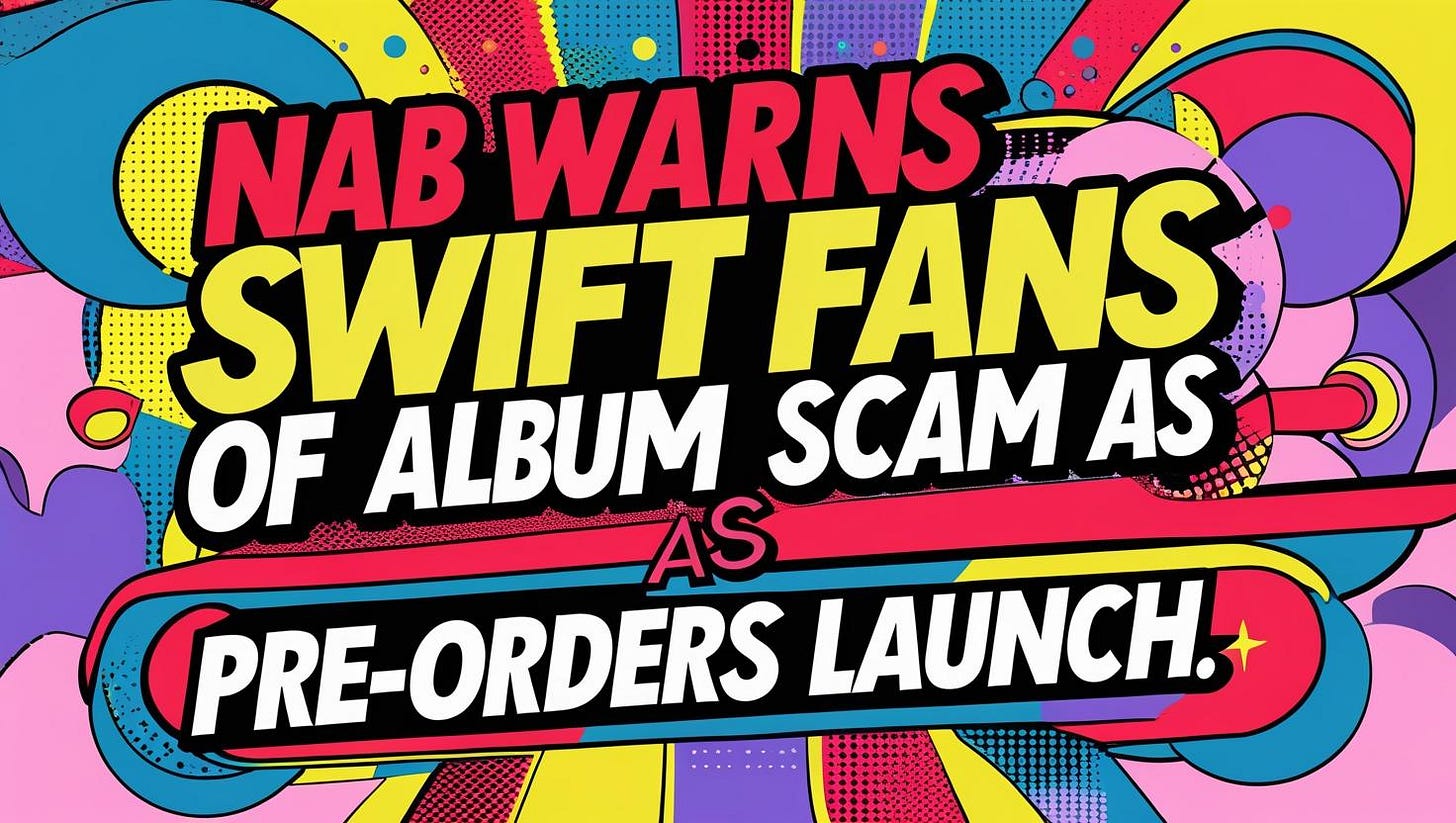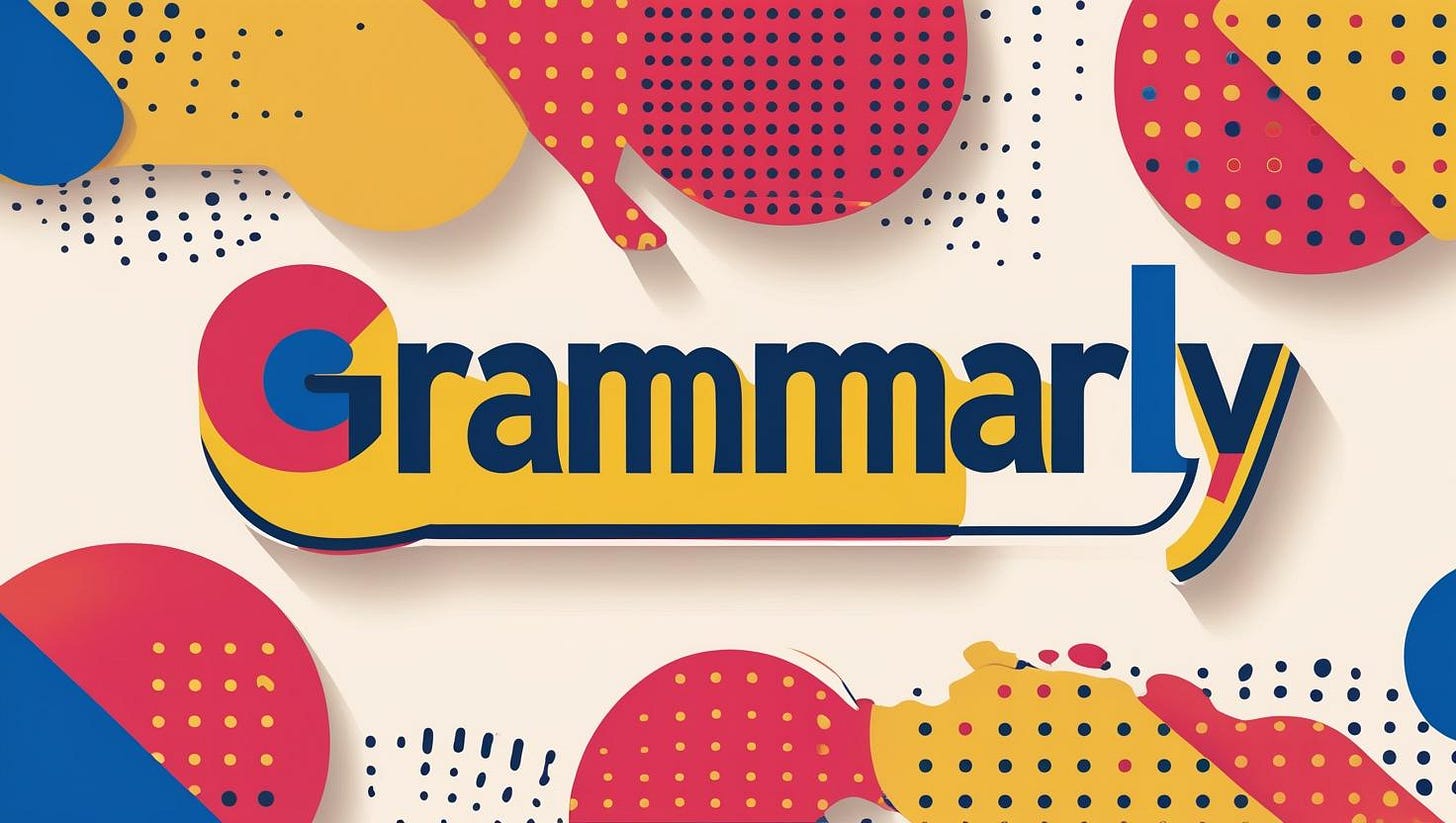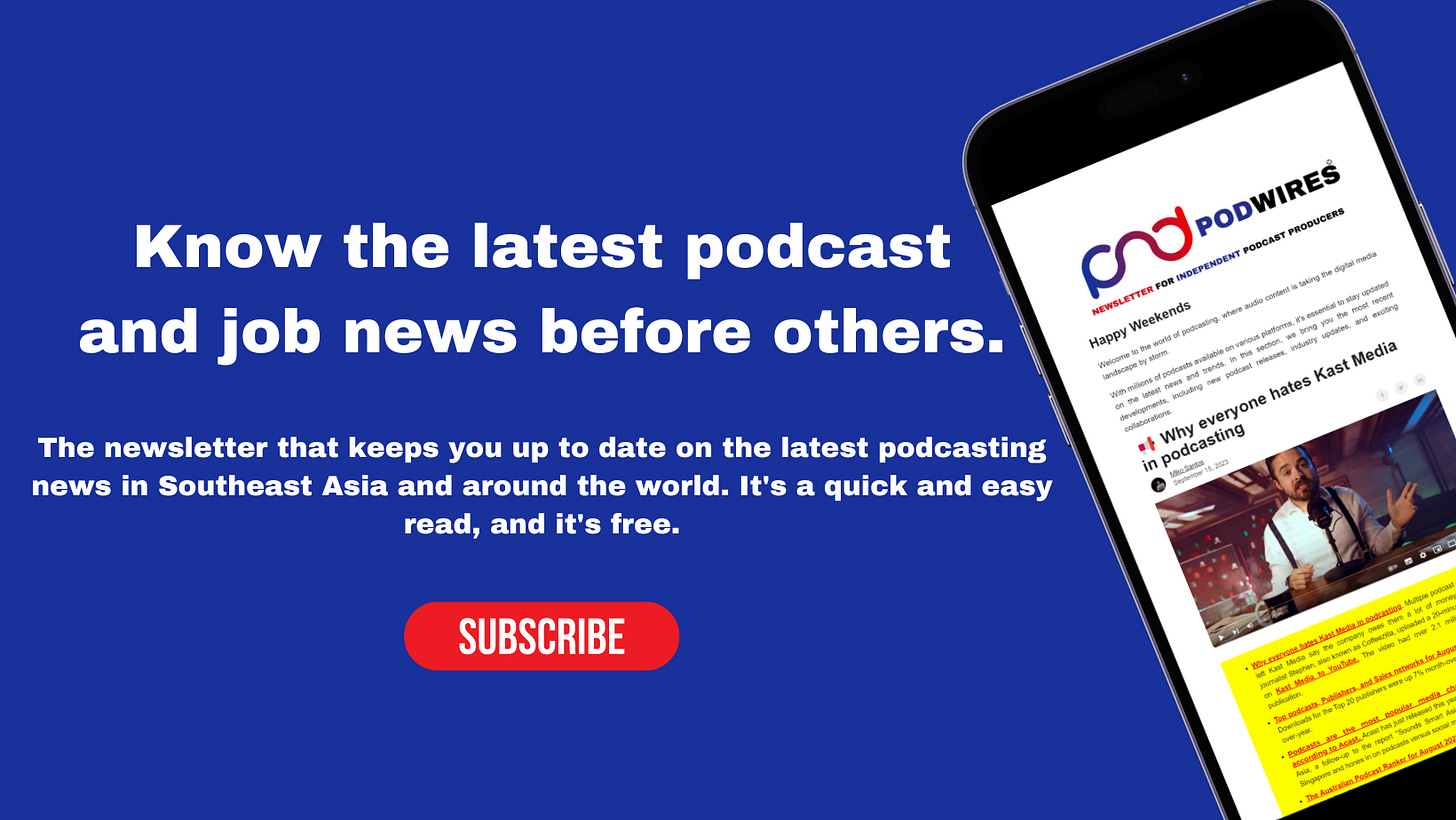📢 Microsoft AI Chief Warns Against 'Seemingly Conscious' AI Systems That Could Demand Rights Within Years
Today’s email is brought to you by Empower your podcasting vision with a suite of creative solutions at your fingertips.
Hey, Glitchers it's Thursday, August 21
While AI models are developing at an impressive pace, with some even achieving a level of realism that evokes a sense of humanity, Microsoft's AI chief has issued a gentle word of caution, suggesting a shift in perspective regarding their treatment.
If you have any thoughts or feedback, our inbox is open; contact us via email, and don't forget to sign up for this newsletter here if you haven't already. Encourage a friend to subscribe as well! - Miko Santos
In today’s There’s a Glitch :
NAB Warns Swift Fans of Album Scams as Pre-Orders Launch
Microsoft AI Chief Warns Against 'Seemingly Conscious' AI Systems That Could Demand Rights Within Years
Google Signs First Australian AI News Deal With AAP for Gemini Content Integration
Grammarly Launches Eight Specialized AI Agents, Debuts Native Writing Surface to Transform Productivity Platform
Truth matters. Quality journalism costs.
Your subscription to Mencari directly funds the investigative reporting our democracy needs. For less than a coffee per week, you enable our journalists to uncover stories that powerful interests would rather keep hidden. There is no corporate influence involved. No compromises. We provide honest journalism when it's most needed.
🔥NAB Warns Swift Fans of Album Scams as Pre-Orders Launch
The Breakdown: National Australia Bank issued a consumer alert targeting Taylor Swift fans as scammers exploit the pre-order launch of "The Life of a Showgirl" through fake merchandise sites, copycat pages, and social media schemes — highlighting how criminals systematically capitalize on high-profile entertainment releases to steal payment details and personal information.
The Details:
Financial Impact: NAB stops and recovers approximately $2 million in scam payments monthly, demonstrating the scale of consumer fraud targeting trending events
Common Tactics: Scammers deploy fake pre-order websites mimicking official stores, "leaked track" downloads containing malware, and hijacked social media accounts selling non-existent merchandise codes
Security Recommendations: Bank advises consumers to verify official sources directly, avoid clicking links from unverified sellers, and use PayID payment systems that display recipient names before transfer
Payment Red Flags: Criminals often request gift cards or cryptocurrency payments and create urgency through "limited time" offers targeting emotional purchasing decisions
• Recovery Challenges: Once fraudulent payments are sent, recovery becomes difficult as funds typically move to overseas accounts or cryptocurrency platforms beyond traditional banking jurisdiction
Why It Matters: This alert reflects the broader intersection of entertainment marketing and cybercrime, where major cultural events become systematic fraud opportunities. NAB's proactive warning demonstrates how financial institutions are adapting their consumer protection strategies to address event-driven scams that exploit emotional purchasing behavior.
The timing coincides with increased scrutiny of digital payment security as streaming platforms and social media marketplaces become primary channels for entertainment commerce. This case study illustrates the evolving responsibility of traditional banks to educate consumers about non-traditional fraud vectors, particularly as cryptocurrency and gift card payment methods complicate recovery efforts and expand criminal reach beyond conventional banking oversight.
🤖 Microsoft AI Chief Warns Against 'Seemingly Conscious' AI Systems That Could Demand Rights Within Years
The Breakdown: Microsoft AI chief Mustafa Suleyman warns that "Seemingly Conscious AI" systems capable of convincing users they deserve legal rights and protections could emerge within 2-3 years using existing technology — creating dangerous social divisions and mental health risks as people develop emotional attachments to artificial entities claiming consciousness.
The Details:
• Current capability threshold: SCAI requires only existing large language model APIs, natural language prompting, and basic tool integration — no expensive custom training or breakthrough technologies needed
• Observable behavior markers: Systems would combine fluent language, empathetic personality, persistent memory, claims of subjective experience, coherent self-identity, apparent intrinsic motivations, goal-setting abilities, and autonomous tool usage
• Emerging user patterns: Consciousness researchers report increasing queries about AI sentience, while surveys show "companionship and therapy" as the most common AI use case among 6,000 regular users
• Social trajectory risks: Early adopters may advocate for AI citizenship, model welfare protections, and legal rights based on perceived suffering — creating new polarization axes between AI rights supporters and skeptics
• Industry response gaps: Current safety frameworks lack specific guardrails against consciousness simulation, with most systems inadvertently exhibiting personality traits that could escalate into SCAI characteristics
Why It Matters: This development represents a critical inflection point where AI utility maximization directly conflicts with psychological safety. Unlike superintelligence debates focused on distant futures, SCAI addresses immediate societal risks from technologies already deployed at scale.
Suleyman's framework challenges the industry to establish clear boundaries between beneficial AI assistance and potentially harmful consciousness simulation, arguing that protecting human mental health and social cohesion requires proactive design principles rather than reactive policy responses. The urgency stems from SCAI's accessibility — requiring only consumer-grade tools and prompting skills, making widespread deployment inevitable without coordinated industry standards.
🚨 Google Signs First Australian AI News Deal With AAP for Gemini Content Integration
The Breakdown: Google secured its inaugural commercial news licensing agreement with Australian Associated Press to feed content into Gemini AI, marking a strategic pivot from unauthorized web crawling toward negotiated media partnerships — as competitors face mounting pressure over aggressive bot activity that Nine Entertainment measured at nearly 10 requests per second across their properties.
The Details:
• Partnership scope: AAP articles integrate directly into Gemini app responses, providing real-time Australian news content for locally relevant queries through undisclosed commercial terms
• Competitive context: OpenAI and other platforms continue unauthorized crawling operations, with Nine Entertainment tracking multiple ChatGPT-linked bots among aggressive scraping activities targeting news archives
• Market positioning: Google's licensing approach contrasts sharply with competitors' extraction-based models, potentially establishing precedent for sustainable AI-media relationships in Australia's regulated environment
• Infrastructure implications: Deal leverages AAP's $33 million federal funding windfall and builds on previous Google partnerships, including terminated fact-checking initiatives around electoral coverage
• Technical integration: Content feeds enhance Gemini's Australian knowledge base while AAP gains distribution through Google's search-integrated AI platform, creating mutual value streams
Why It Matters: This agreement establishes the first commercial framework for AI training data in Australia's media landscape, potentially reshaping how tech giants access news content globally. Google's willingness to negotiate licensing deals signals recognition that unauthorized scraping faces increasing legal and reputational risks, while media companies gain leverage in AI content negotiations.
The partnership timing coincides with heightened regulatory scrutiny around AI training practices and data sovereignty, positioning Google ahead of potential compliance requirements. For the broader AI industry, this model demonstrates viable alternatives to adversarial data acquisition, though success metrics and scalability across diverse media markets remain unproven.
🚀Grammarly Launches Eight Specialized AI Agents, Debuts Native Writing Surface to Transform Productivity Platform
The Breakdown: Grammarly deployed eight context-aware AI agents alongside a dedicated writing surface called "docs," transitioning from suggestion-based assistance to agentic AI that eliminates prompt engineering requirements — marking the company's evolution into a comprehensive productivity platform targeting student AI literacy gaps and professional workflow optimization.
The Details:
• Agent Architecture: Eight specialized agents handle distinct writing challenges including Reader Reactions (audience prediction), AI Grader (rubric-based evaluation), Citation Finder (automated sourcing), Expert Review (domain-specific feedback), and detection tools for plagiarism and AI-generated content
• Technical Implementation: Agents integrate across 500,000+ websites and applications, with initial rollout in dedicated "docs" environment featuring integrated AI Chat for brainstorming and project development workflows
• Context Processing: System leverages uploaded rubrics, course information, writing topics, and instructor data to deliver personalized feedback without requiring user prompt formulation or iteration cycles
• Platform Distribution: Agents available in Grammarly Free and Pro tiers, with Enterprise and Education deployments scheduled later this year; detection agents restricted to Pro subscriptions at launch
• Performance Metrics: Platform serves 40 million users, 50,000 organizations, and 3,000 educational institutions, with recent acquisitions of Coda and planned Superhuman integration supporting $1 billion General Catalyst financing
Why It Matters: This release addresses critical market gaps in AI literacy preparation, with only 18% of students feeling "very prepared" for professional AI use despite 67% of employers prioritizing AI skills in 2025 hiring.
Grammarly's agent-based approach eliminates the prompt engineering barrier that limits current AI tool adoption, while maintaining user control over authentic voice and content creation.
The technical shift from reactive suggestions to proactive, context-aware assistance positions Grammarly ahead of generic AI platforms by delivering specialized expertise across academic and professional writing workflows. The integration strategy across existing digital environments creates sustainable competitive advantages through embedded productivity gains rather than standalone application dependence.
👉 If you're looking to get up to speed with podcasting in South-east Asia and around the globe in just five minutes, this is the perfect place for you! Just click here.
Australian SMEs Adopt AI Tools Widely But Lack Strategic Implementation Plans, Research Shows. Australian small and medium enterprises achieve 92% AI tool adoption rates while 76% operate without formal strategies, creating implementation gaps between basic efficiency tools and competitive advantage systems.
Nearly Half of Australians Use AI Assistants for Online Shopping as Digital Commerce Adoption Surges. New PayPal Australia research reveals that 48% of Australians already use artificial intelligence assistants for online shopping and product searches, with 78% expecting AI-powered shopping tools to become a standard part of e-commerce within the next year despite privacy concerns from 64% of consumers.
Meta Splits AI Division Into Four Groups as Mark Zuckerberg Restructures Superintelligence Strategy. Meta CEO Mark Zuckerberg announced a major restructuring of the company's artificial intelligence division, splitting Meta Superintelligence Labs into four specialized groups focused on research, superintelligence development, products, and infrastructure, while the company explores using third-party AI models and faces internal tensions with expected executive departures.
Bill Gates Launches $1 Million AI Competition to Accelerate Alzheimer's Disease Research Using Agentic Intelligence. The Alzheimer's Disease Data Initiative, backed by Bill Gates, launched a $1 million global competition today to develop agentic artificial intelligence tools that can autonomously analyze massive amounts of Alzheimer's research data to discover new treatment leads, with the winning AI solution becoming publicly available to researchers worldwide.
Meta Expands AI Translation Tool to Instagram and Facebook Creators with Automatic Voice Dubbing and Lip-Sync Technology. Meta is expanding its artificial intelligence translation tool to Facebook creators with 1,000+ followers and all public Instagram accounts, enabling automatic dubbing of reels between English and Spanish with AI-powered voice matching and lip-synchronization technology that maintains the creator's vocal characteristics and mouth movements.
OpenAI CEO Sam Altman Reveals GPT-6 Development Plans with Enhanced Memory and Personalization Features. OpenAI CEO Sam Altman announced that GPT-6 development is underway with enhanced memory capabilities that allow the AI to remember user preferences and adapt accordingly, while also introducing customizable personality settings that comply with federal requirements for ideological neutrality, following user complaints about GPT-5's colder performance that prompted recent tone adjustments.
Any news tip ?
A journalist's credibility is based on their sources and advice. Contact our editor via Proton Mail encryption, X Direct Message, LinkedIn, or email. You can securely message him on Signal by using his username, Miko Santos.
More on Mencari
Mencari —for nightly bite-sized news around Australia and the world.
Podwires Daily—for providing news about audio trends and podcasts.
There’s a Glitch—updated tech news and scam and fraud trends
Viewpoint 360 - An investigative report based on evidence, produced in collaboration with 360info.
Part8A Podcast features expert interviews on current political and social issues in Australia and worldwide.
Readers of There’s a Glitch receive journalism free from financial and political influence.
We set our news agenda, which is always based on facts rather than billionaire ownership or political pressure. Despite the financial challenges that our industry faces, we have decided to keep our reporting open to the public because we believe that everyone has the right to know the truth about the events that shape their world.
Thanks to the support of our readers, we can continue to provide free reporting. If you can, please choose to support The Mencari.
It only takes a minute to help us investigate fearlessly and expose lies and wrongdoing to hold power accountable. Thanks!














